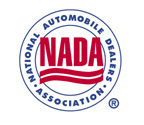Expensive Fuel Economy Proposal Will Price More Than 7 Million Consumers Out of New-car Market, NADA Says
 |
SAN FRANCISCO--Jan. 24, 2012: The National Automobile Dealers Association (NADA) said today that more than 7 million Americans would no longer be able to afford to buy a new car or truck in 2025 if the most expensive fuel economy rule ever proposed goes into effect.
The comments were made by NADA director Forrest
McConnell in testimony today at the final hearing on proposed fuel
economy rules held by the Environmental Protection Agency (EPA) and the
National Highway Traffic Safety Administration (NHTSA) in San Francisco.
McConnell, a Honda and Acura dealer in Montgomery, Ala., said the EPA's projected $3,200 increase in vehicle prices over model year
2010 will also limit the ability of many other consumers to buy the
vehicles they want or need.
McConnell's testimony stressed the importance of credit availability
to auto sales, noting that with most consumers, if they don't qualify for
an auto loan, they can't buy the vehicle. However, because he is unaware of
any lender who will "fund an auto loan based on promises of fuel savings,"
McConnell expressed concern that the proposal's vehicle cost increases
would significantly dampen sales. And, McConnell warned, "if new vehicles
don't get sold, their fuel saving or environmental benefits won't
materialize."
McConnell also explained that a 2011 U.S. Energy Information
Administration analysis found that if the rule takes effect, cars under
$15,000 will no longer be available in 2025.
He underscored that these least expensive cars are the only option for many
college students and working families looking for a new car.
"How is a rule that eliminates the most affordable new cars on the
market pro-consumer?" McConnell asked the EPA and NHTSA officials who are
considering a new mandate to increase fuel economy to 54.5 miles-per-gallon
by 2025.
"America's auto dealers support continuous improvements in fuel
economy," McConnell added. "Instead of fighting the consumer, NADA urges
the administration to act in a manner that will leverage consumer demand,
thereby maximizing fleet turnover and ensuring maximum feasible fuel
economy increases."


